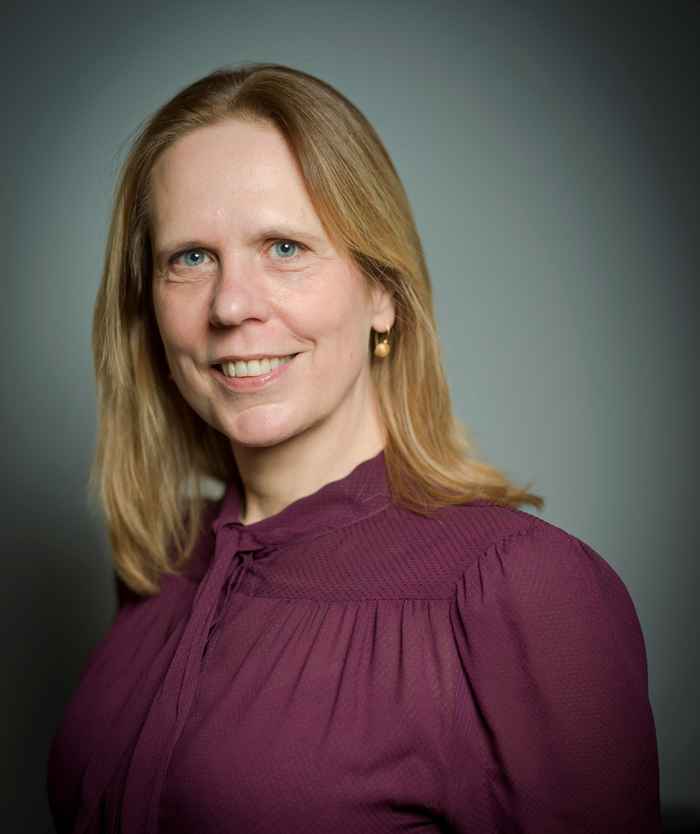Setback as strength: a new perspective
De Groene Amsterdammer Blog Post by Sanne Bloemink
14 December 2024

People who grow up in a socio-economically disadvantaged situation not only face significant difficulties but also develop valuable skills, such as empathetic accuracy. 'I wish there was a broader perspective on these young people, one that does justice to the whole picture.'
Willem Frankenhuis, an evolutionary psychologist affiliated with, among others, the Max Planck Institute for the Study of Crime, Security, and Law and the University of Amsterdam, grew up in a privileged environment: no financial worries, two parents, a safe childhood. At the same time, he had close friends who dealt with 'severe forms of adversity.' Viewed through the 'academic lens' of the psychologist, Frankenhuis observes that people who grow up with such systematic adversity seem to perform less well on various fronts compared to those raised in a safe environment. For example, they often score lower on various cognitive tests. 'Chronic stress causes a lot of suffering and can be detrimental to people's health and well-being. Therefore, we must continue to work on reducing the institutional causes of this type of stress. Moreover, these people deserve help where needed.'
However, Frankenhuis also noticed something else about his friends. 'I saw that they had developed skills that you don’t see when you look through that academic lens, skills that I hadn’t developed myself.' For example, he found himself in a situation where one of his friends was challenged by another boy, as often happens on the street. 'That friend responded aggressively, and the other boy ran away. I was shocked, said nothing, and stood there. But what impressed me the most was that six hours later, the friend came back to this. He said: “I saw that you were shocked. But you have to see it this way: I had to do that. I grew up without my parents’ help in a world where everything would have been taken from me if I hadn’t reacted that way.”’
Later, Frankenhuis encountered animal research that showing that animals living with adversity develop certain adaptive skills. 'At that point, I thought: why don’t we know more about this in humans? We often focus on repairing certain "deficits" – a concept known as the "deficit model." For example, we aim to improve school-related cognitive tasks, but we always remain within the same standards of what constitutes good performance.'
Take the example of someone reacting aggressively when challenged. 'From the deficit perspective, you’d say: this person hasn’t controlled their impulses well. But from their own perspective this ensures that their belongings aren’t taken. My basic assumption is that these strategies can be functional within the context of the family and environment someone grows up in. In practice, people working with these groups often recognize this, but in science, we remain heavily focused on deficiencies and behaviors that needs to be “unlearned”.'

Frankenhuis argues this focus must change. If we only highlight deficiencies, we miss vital information. 'It’s in everyone’s interest that these individuals are viewed more holistically.' Beside their vulnerabilities and challenges, they also develop unique skills and a deep, complex view of the world. 'I wish there were a broader perspective on these young people – one that does justice to the whole picture.'
One relevant example is the famous marshmallow test, which measures how well children can delay gratification (choosing a small, immediate reward – one marshmallow now – versus a larger reward – two marshmallows later). On average, children who grew up facing more adversity wait less time for the second marshmallow. Researchers often interpret this as a deficiency: shortsightedness, or an inability to recognize that a little patience yields greater rewards in the future.
'But,' says Frankenhuis, 'immediately taking the first marshmallow can, of course, be a highly functional choice in an environment where you can’t trust that the second marshmallow will actually appear. When children from a stable, safe environment are exposed to unpredictable situations – for example, in a test scenario, by breaking a promise just before the marshmallow test – they also wait less time. This suggests that waiting less time can be an adaptive strategy to an unpredictable environment.
Similarly, studies show that people from disadvantaged backgrounds are more likely to give negative interpretations to ambiguous situations or facial expressions. 'This tendency is sometimes described as inaccuracy in judgement, but it may reflect a response to growing up in an environment where ambiguous situations are more frequent and where the consequences of a wrong judgment are much higher. When the potential costs are greater, it’s more rational to be cautious and take the safer option.' So, once again, the adaptation perspective offers a possible explanation.
There is also evidence that people in socio-economically disadvantaged situations develop higher empathetic accuracy, enabling them to read others more quickly. This, too, is an understandable adaptation to their environment. 'When I observe adaptive behavior, it’s not a normative statement,' Frankenhuis emphasizes. 'Every skill is a form of power that can be used for good or ill, depending on the circumstances.'
Frankenhuis believes this adaptive perspective can counteract publication bias in science. “I know researchers in large labs who found results that didn’t fit the deficit model. The temptation to dismiss these results is high. But if we adopt an adaptive perspective, we may uncover fascinating new insights.”
He also stresses the importance of conducting this research in collaboration with the communities involved to achieve meaningful societal impact. ‘What might our schools look like if we valued the skills developed through adversity and allowed children to learn in ways that suit them better? Can we create a world where adversity is not only seen as an obstacle but also as a source of valuable skills? I’m convinced this shift would not only benefit these groups but society as a whole.’
Author: Sanne Bloemink
Published in De Groene Amsterdammer on December 14, 2024. Translated by the Institute for Advanced Study.